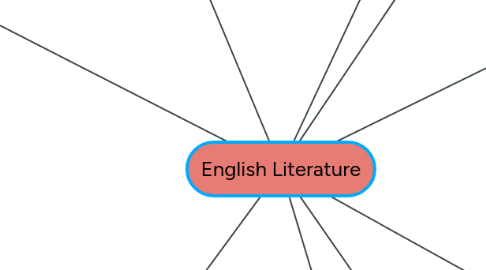
1. Analysis of Great Expectations
1.1. Repetition, repression and return. Recognition scene. A contrario ending
1.2. Pip as a snob - humour - progress and development (18th-19th century), BILDUNGSROMAN., importance of poetry
1.3. The importance of looking, Pip as a spectacle, then a spectator
1.4. City/country, innocence/experience
1.4.1. Animal imagery
1.4.1.1. Criminal imagery
1.4.1.1.1. Knowable community
1.5. The plot divided into three phases
2. Analysis of Jack Maggs
2.1. Historical novel
2.1.1. Detailed description of London
2.1.2. Fictional biography
2.1.2.1. Tobias Oates's as Dickens's counterpart
2.1.3. Metafictional novel
2.1.3.1. Maggs and mesmerism
2.2. Rewriting and writing back
2.3. Prisons
2.3.1. Tobias's mesmeric sessions
2.3.1.1. The Death of Maggs
2.3.1.1.1. Jack Maggs vs Tobias Oates
2.4. Story of Jack Maggs, taken in as a footman; Henry Phipps; Mercy Larkin; Tobias Oates
2.5. Writing-back paradigm
2.5.1. Great Expectations and Jack Maggs: self-delusion motif
2.5.1.1. The concept of Australia
2.6. Space and displacement
2.6.1. Forbidden boundaries: Ma Britten and Henry Phipps
2.6.1.1. Subverting the writing space: Jack writing his own story (invisible ink, mirror and lemon juice)
2.6.1.1.1. Conclusion of the novel; Jack's return to Australia
2.7. Dickens vs Carey: Australia
2.7.1. Dickens vs Carey: Abel Magwitch vs Jack Maggs
2.8. Jack Maggs vs Mister Pip
2.8.1. The importance of Australia
3. Analysis of Mister Pip
3.1. Matilda
3.1.1. Great Expectations vs Mister Pip
3.1.1.1. Mr Watts and Great Expectations
3.1.2. Matilda's maturation and Pip's maturation
3.2. Mister Pip as hypertext of Great Expectations (hypotext) - Genette
3.3. The plot
3.3.1. Redskins, rebellions and Mr Watts
3.3.1.1. Bougainville and Townsville
3.3.1.1.1. Marshes and London
3.4. Another version of Great Expectations
3.4.1. 4. Matilda's written memoir of Mr Watts's oral life story, told around a campfire
3.4.1.1. 5. Matilda's tale in her book; relationships between Dickens's and Matilda's stories
3.4.2. Escaping to another world
3.4.2.1. Mister Pip's epigraph from Umberto Eco: "Characters migrate"
3.5. Five variations on Great Expectations
3.5.1. 1. The watered-down version Mr Watts reads to the children in class
3.5.1.1. 2. Recreation of the Victorian novel by summing it up and shrinking it
3.5.1.1.1. 3. Mr Watts writes down the children's fragments to reconstruct the story
3.6. The importance of books and literature
4. Representation, narrator & realism
4.1. 18th century literature
4.1.1. 19th century literature
4.2. Sense and sensibility
4.2.1. Jonathan Swift
4.2.1.1. The novel: Daniel Defoe
4.2.1.1.1. Samuel Richardson
5. Augustan Literature: to 1790 the Enlightenment
5.1. Romantics
5.1.1. Lord Byron
5.1.1.1. Percy Bysshe Shelley
5.2. Fiction
5.2.1. Mary Shelley
5.2.1.1. Jane Austen
6. The Victorian Age
6.1. Charles Darwin
6.2. Fiction: the Brontë novels
6.2.1. Jane Eyre
6.2.1.1. Wuthering Heights
6.3. Charles Dickens
6.3.1. The Pickwick Papers
6.3.1.1. Oliver Twist
6.3.1.1.1. David Copperfield
6.3.2. Bleak House
6.3.2.1. Our Mutual Friend
6.3.2.1.1. Great Expectations
6.4. William Makepeace Thackeray
6.4.1. Vanity Fair
6.5. George Eliot
6.5.1. The Mill on the Floss
6.5.1.1. Middlemarch
6.6. Lewis Carroll
6.6.1. Alice's Adventures in Wonderland
6.7. Late Victorianism: Aestheticism
6.7.1. Oscar Wilde
6.7.2. Robert Louis Stevenson
7. Culture and Imperialism
7.1. Culture
7.2. Imperialism
7.3. Australia
7.4. Foucalt's discourse
7.5. Orientalism
7.5.1. Contrapuntal reading
8. David Lean's Great Expectations
8.1. Bonds
8.2. Miss Havisham
8.2.1. Estella
8.2.1.1. Ending
9. Alfonso Cuaron's Great Expectations
9.1. Name of the characters
9.1.1. Finn and Estella
9.1.1.1. Ending
